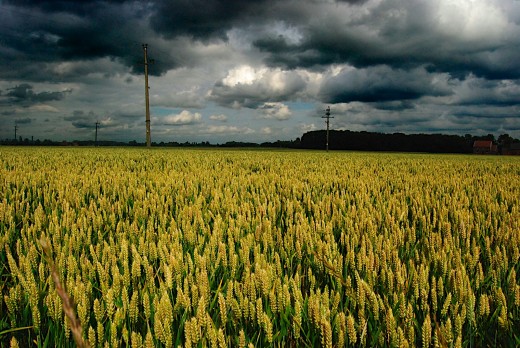Is Ethanol Driving Up Food Prices?

Just the question alone makes you want to answer in the affirmative. Of course ethanol makes food more expensive. More corn for fuel, less for feed; more land for corn, less for soybeans; more demand for corn, more value per bushel; higher prices for corn, higher for beef, pork, poultry and corn-syrup products. This question is the ultimate no-brainer. And yet…Before we consign ethanol to permanent villain status, it might be worthwhile to consider whether its benefits balance its demands, whether it is the only reason for rising food costs and whether ethanol still might be a work in progress.
No Single factor
To be fair, an objective consumer must acknowledge a multiplicity of factors affecting rising prices. Weather is always at play when looking at agricultural output. Droughts were particularly hard on farms in the US, European Union and China in the summer of 2011. The same conditions in Russia prompted that government to ban all wheat exports in 2010 until that crop could bounce back. Underproduction makes crops more dear and, thus, more expensive.
Another negative influence on food prices is petroleum, the very commodity ethanol seeks to replace. When oil prices head north, so too do input costs for farmers, processors, packers, shippers and retailers. Little surprise that such an extra burden is then passed on to consumers. Since most everyone depends on this form of energy for daily living, the combination of soaring gas and food prices serves as a double whammy.
Growing populations mean more mouths to feed. Not only will farmers be required to produce more, but the entire agricultural infrastructure – feedlots, slaughter facilities, grain elevators and packing operations – will need to be expanded and updated. Capital improvements of this sort are costly, reflected in the price of food.
Unfair trade practices, currency manipulation and hoarding by governments also destabilize the gravity of food prices. Although it is natural for trading partners to seek an edge against one another, the World Trade Organization sets rules to keep the competition as fair as possible. Consumers will suffer when even one party manages to skirt the rules.
Ethanol Liabilities
Conceding the existence of several reasons for food price inflation, are we to exonerate ethanol entirely? Hardly. To return to infrastructure for a moment, ethanol is unable to travel along pipelines, given its propensity to pick up impurities and excess water. Therefore, it requires transport via highway, railway and waterway, each more expensive than a pipeline conduit. Again, who picks up the tab for the added expenditures? Ethanol costs more than gasoline.
The demand for corn spurred by ethanol competes for land with other food crops like soybeans. While a farmer may receive a short-term benefit by planting corn for use as biofuel, the resulting reduction in soybean output will drive up the price of that crop and all the derived soy products. This maxim holds true for wheat, sorghum and other grains. Not only does corn get pricier, but so too the crops it is crowding out.
The 2007 federal mandate requiring 27 percent of harvested corn for ethanol creates inelasticity – to speak like an economist – in the markets. Since the going price of ethanol does not affect the mandate, farmers must sacrifice the same portion of yield to ethanol even if it costs them to do so. This means that corn for livestock feed and corn syrup must remain high even when demand for them might slip.
Ethanol Benefits
The US leads the world in corn production. With this in mind, ethanol advocates suggest we play to our strengths. The more ethanol we use, the less dependent we are on hostile regimes for fossil fuels. Secondly, with improvements in technology, ethanol no longer requires more energy to produce it than it provides. One million British Thermal Units of ethanol are produced by .74 million BTUs of fossil fuel. By contrast, one million BTUs of gasoline require 1.23 million BTUs of fossil fuel.
Most importantly, ethanol production does not rob livestock of feed to the degree critics suggest. One-third of the corn used for ethanol is left over as by-product. This fairly nutritious feed is referred to as Dried Distillers Grains with Solubles. DDGS are dense in protein, vitamins, minerals and energy, and considered excellent feed for cattle, hogs and poultry, though cows appear to derive the most nutritional benefit.
Ethanol: Is It Worth IT?
Granted, ethanol does possess some advantages. It is certainly not the only cause of food price inflation. Nevertheless, the enormous subsidies bestowed by the federal government do not yield a high return on investment. Furthermore, the mandate imposed on the total harvest is harmful to free markets and – in the end – detrimental to farmers. All agree that ethanol plays some role in the price of food, the Congressional Budget Office pinning ten to fifteen percent of the increase on the bio-fuel. All that said, the promise and potential of ethanol is better fulfilled by private sources rather than government. Artificial mandates and generous subsidies have caused too many economic ripples.




